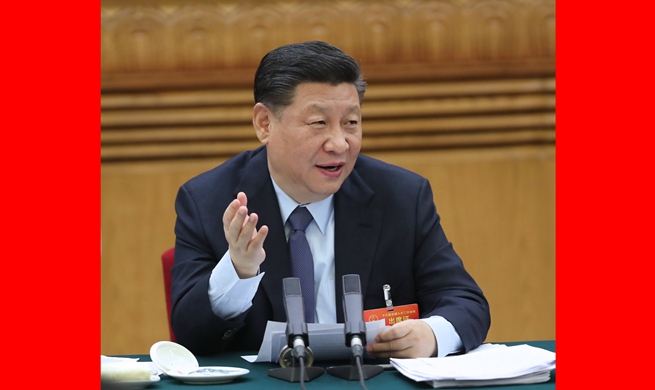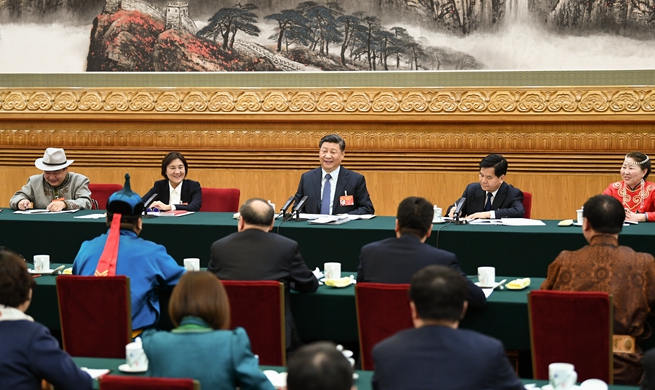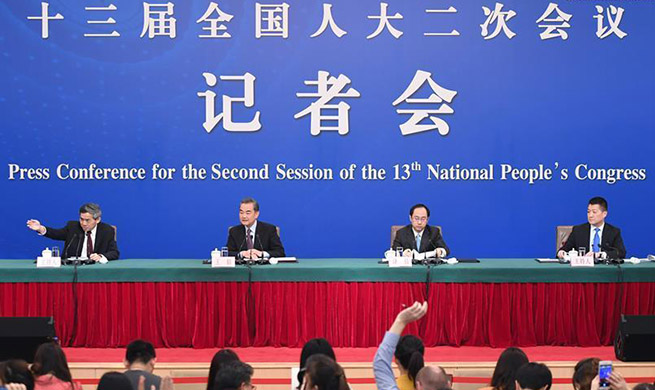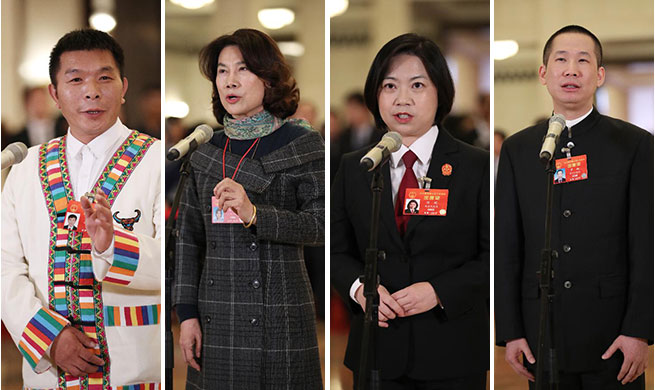JINAN, March 8 (Xinhua) -- Wang Xiujuan works as a furniture saleswoman in east China, which requires constant standing and has made her menopausal symptoms worse.
Wang, however, is expecting easier days as government measures to better protect female workers took effect ahead of International Women's Day.
The local government of east China's Shandong Province, home to over 8 million female employees, introduced a regulation to better protect the rights and interests of female employees this month, entitling those going through the menopause to opt for positions they are more comfortable with.
"Symptoms such as hot flushes, insomnia and anxiety have made the job more challenging than ever before," Wang said. "I had no choice but to ask for sick leave sometimes."
If the employer doesn't approve position change applications from its female employees suffering menopausal syndrome, the latter can go through legal procedures and apply for labor arbitration, according to the regulation.
Female employees can also enjoy paid leave for painful periods.
"I often felt embarrassed when asking for a period leave, but now it's no longer a problem since it has been a company routine," said Chen Meijia, a receptionist at an intercity bus station in China's eastern coastal city of Qingdao.
From March 7, all 6,000 female staff of Qingdao Jowin Group, the city's major bus operator, are entitled to have an one-day paid period leave every month, according to the company's HR department.
"The policy is very heartwarming especially with International Women's Day upon us," Chen said.
China has since 2016 allowed all couples to have two children, putting an end to a 40-year-long one-child policy and thus requiring better protection of women's rights in workplace.
Women in Shandong now can enjoy eight more days for maternity leave, according to the regulation.
The Ministry of Human Resources and Social Security has called for a ban on a spate of gender discrimination practices in job recruitment to protect the rights of women.
"The regulation can help ensure equal employment opportunities and better protect the occupational safety and health of female employees," said Liu Miao, an official with the provincial department of justice.
The regulation, however, has aroused heated discussion.
Many fear that overprotecting women's rights could trigger more discrimination, particularly in job recruitment from private businesses.
"Such policy could make employers be more cautious in recruiting women, thus increasing the difficulty for them to land jobs," said Liu Guomin, senior partner with Grandall Law Firm (Jinan).
"The introduction and implementation of such a regulation should be fully discussed, and opinions from all sides including female workers, doctors and employers should be considered," said Xia Xueluan, professor at the department of sociology at Peking University.

















